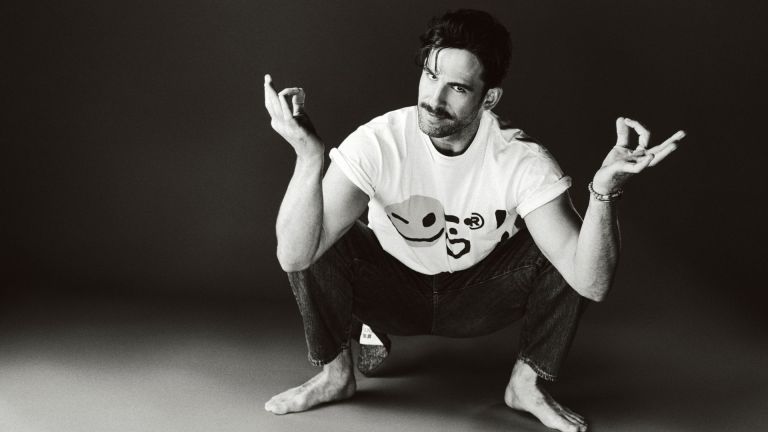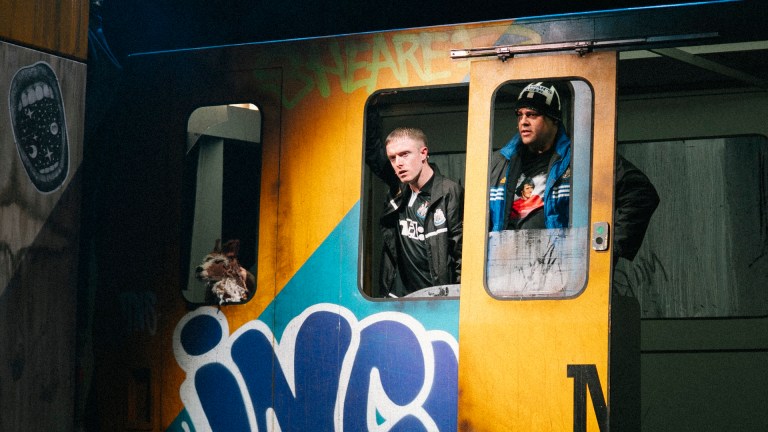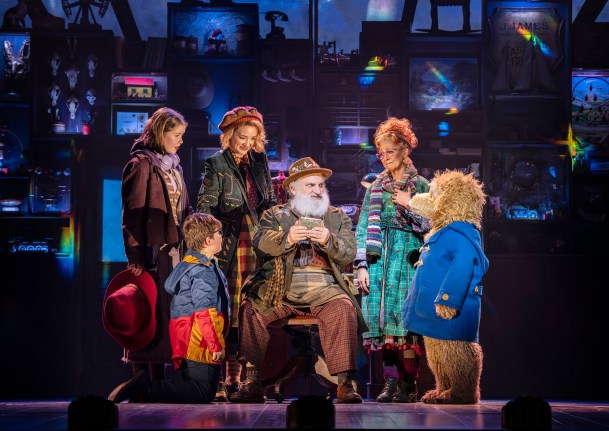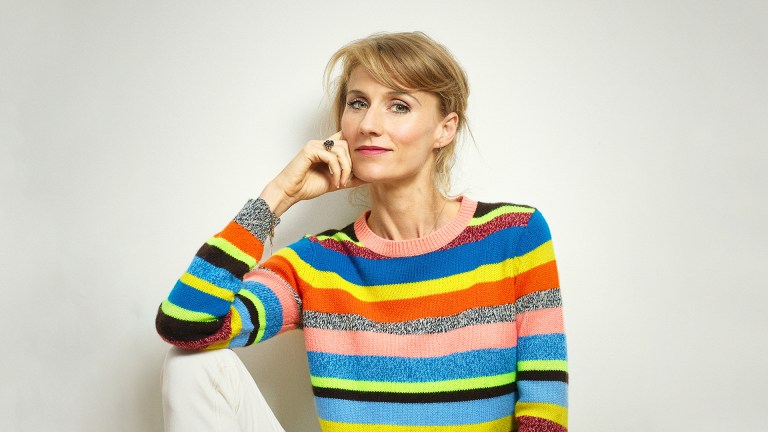Joe Murphy and Joe Robertson created The Jungle – a play following the lives of people in the Calais Jungle migrant camp, and Little Amal – the giant puppet of a Syrian refugee who crossed the world. The new play by Murphy and Robertson – whose Good Chance Theatre company were among the Big Issue Changemakers 2019 cohort – features John Prescott, Angela Merkel and Al Gore and looks at the 1997 Kyoto agreement. Kyoto, which opens in Stratford-Upon-Avon this June, asks whether the groundbreaking environmental agreement offers hope for the future of the planet and politics…
Since Good Chance’s foundation in the Calais ‘Jungle’ refugee camp in 2015, we have been privileged to work all over the world creating art of all shapes and sizes, with truly incredible artists and collaborators.
This ranges from our play The Jungle, a story of struggle and solidarity set against the backdrop of the European refugee crisis, to The Walk, our moving festival of welcome from Syria to Glasgow with Little Amal – a three-metre-tall puppet – at its centre. We have celebrated the culture of Afghanistan by flying kites in 47 cities across four continents in the space of one day, and presented new pieces of theatre, art, music and dance in cities from Istanbul to Algiers, from Paris to Washington DC.
The golden thread which connects all our work is the belief in art’s power to connect, surprise and imagine change. In an ever more global world of increasing disagreement, fear and polarisation sharing the same space as another person, the same air, as a heart-thumping piece of theatre explodes between, around and within you can be an antidote to isolation and individualism. It is theatre, more than any other art form, that can encourage us out of our self-created cells and get us interested in each other and society again.
That thread extends throughout our new play. Kyoto charts the decade-long series of environmental negotiations which lead to the Kyoto Protocol in 1997, which contained the world’s first legally binding carbon emission targets. It’s a remarkable story of humanity finally agreeing to act in the face of climate catastrophe, and of the power of possibility, compromise and hope over powerful vested interests, and that stubborn unwillingness to change present in even the best of human nature.
We were drawn to the story in part because of the burning relevance of the subject matter. Scientists say that 2023 was the warmest year in 100,000 years. We face a daily onslaught of terrifying projections of the impact of climate breakdown. And, of particular pertinence to Good Chance, many hundreds of millions of people are predicted to be displaced from their homes by 2050 as a result of climate-induced drought, famine, resource scarcity and conflict.









